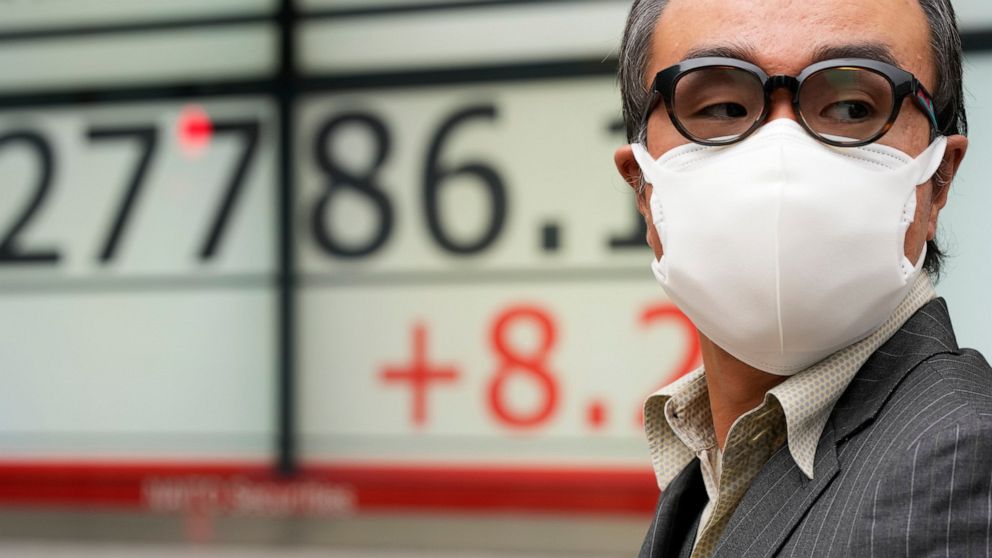Asian shares were mostly higher and oil prices rose Monday after the European Union and the Group of Seven democracies agreed on a boycott of most Russian oil and a price cap of $60 per barrel on Russian exports.
Hong Kong’s benchmark jumped 3.8% and the Shanghai Composite added 1.6%.
Hopes for fewer disruptions to manufacturing and trade have risen as Chinese authorities begin lifting some of the most onerous restrictions imposed to contain outbreaks of the coronavirus, even as they say their “zero-COVID” strategy — which aims to isolate every infected person — is still in place. The curbs have included lockdowns of neighborhoods or buildings, frequent mandatory testing and shutdowns of factories and other businesses.
China recently saw several days of protests across cities including Shanghai and Beijing as public frustration with the COVID-19 curbs boiled into unrest. Some demanded Chinese President Xi Jinping step down in an extraordinary show of public dissent in a society over which the ruling Communist Party exercises near total control.
In other Asian trading, Tokyo’s Nikkei 225 climbed 0.2% to 27,820.40 and the Kospi in Seoul shed 0.6% to 2,419.32. The Hang Seng in Hong Kong was up 715 points at 19,392.45 and the Shanghai Composite added 52 points to 3,207.94. In Sydney, the S&P/ASX 200 advanced 0.3% to 7,325.60.
U.S. benchmark crude oil picked up 44 cents to $80.42 per barrel in electronic trading on the New York Mercantile Exchange. It lost $1.24 to $79.98 per barrel on Friday.
Brent crude added 38 cents to $85.95 per barrel after the OPEC oil cartel and allied producers including Russia decided Sunday not to change their targets for shipping oil to the global economy after .
On Monday, two measures aimed at hitting Russia’s oil earnings in response to its invasion of Ukraine take effect: a European Union boycott of most Russian oil and the price cap.
It was unclear how much Russian oil the two sanctions measures could remove from the global market, tightening supply and driving up prices. The world’s No. 2 oil producer has been able to reroute much, but not all, of its former Europe shipments to customers in India, China and Turkey.
Shares were mixed Friday on Wall Street, as investors fretted over inflation after a report showed U.S. wages were accelerating. That revived worries that the Federal Reserve may not be able to ease back as much as hoped on its big interest-rate hikes.
The S&P…
Click Here to Read the Full Original Article at ABC News: Business…

